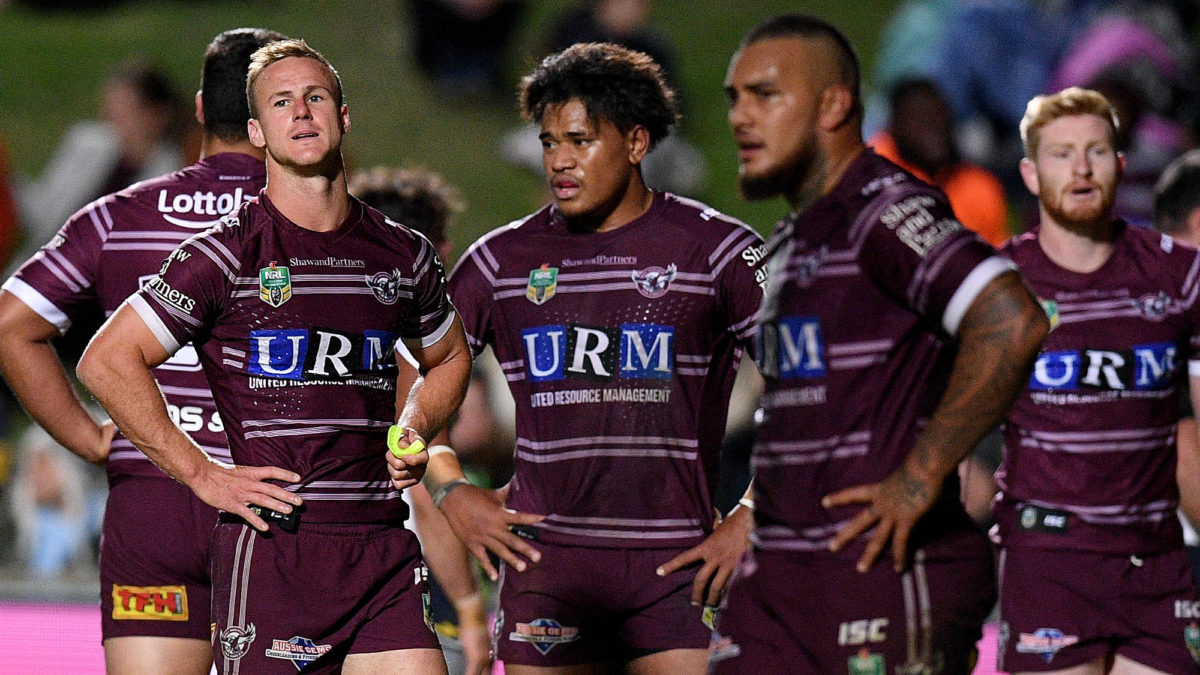
Sea Eagles players react after conceding a try during the Round 13 NRL match between the Manly-Warringah Sea Eagles and the North Queensland Cowboys at Lottoland in Sydney, Thursday, May 31, 2018. (AAP Image/Dan Himbrechts) NO ARCHIVING, EDITORIAL USE ONLY
Inquest Reveals Exertional Heat Stroke as Cause of Death for Manly Sea Eagles Player Keith Titmuss
An inquiry has revealed that the tragic passing of a Manly Sea Eagles player, who collapsed and passed away after a training session with the NRL club in 2020, was due to exertional heat stroke.
Keith Titmuss was found to have a body temperature of 41.9 degrees Celsius when paramedics arrived at the Sea Eagles’ base in Narrabeen on November 23, 2020. Titmuss had just finished a two-hour training session with the club when he began showing signs of agitation and subsequently experienced seizures.
The 20-year-old was swiftly taken to Royal North Shore Hospital, where he tragically suffered a fatal cardiac arrest. A coronial inquest into his death commenced on Monday.
While an autopsy report initially couldn’t determine the cause of death, counsel assisting the coroner Adam Casselden informed the court that medical experts later concluded that Titmuss had succumbed to exertional heat stroke.
Paramedics, upon arriving at the scene, repeatedly measured Titmuss’s body temperature because they found it difficult to believe that it had reached nearly 42 degrees Celsius. One paramedic expressed disbelief, stating, “I did not believe it. I’d never seen a temp like this before. You could literally feel the heat radiating off him.”
Despite the maximum air temperature being 24.9 degrees Celsius on the day of Titmuss’s collapse, the intense training environment likely exacerbated the situation. Casselden noted that Titmuss had gained weight since the previous NRL season and was not as physically fit as many of his teammates, making him more susceptible to the heat.
Furthermore, some of the training that day took place indoors in a non-air-conditioned building on the Narrabeen premises, which a paramedic described as “so hot” upon arrival.
Aaron Coutts, a distinguished professor of sport and exercise science at the University of Technology Sydney, was among the experts who submitted evidence to the coronial inquiry. In his submission, Coutts highlighted that the training session on November 23 was particularly strenuous and inappropriate given that it was the first training session of the pre-season period.







